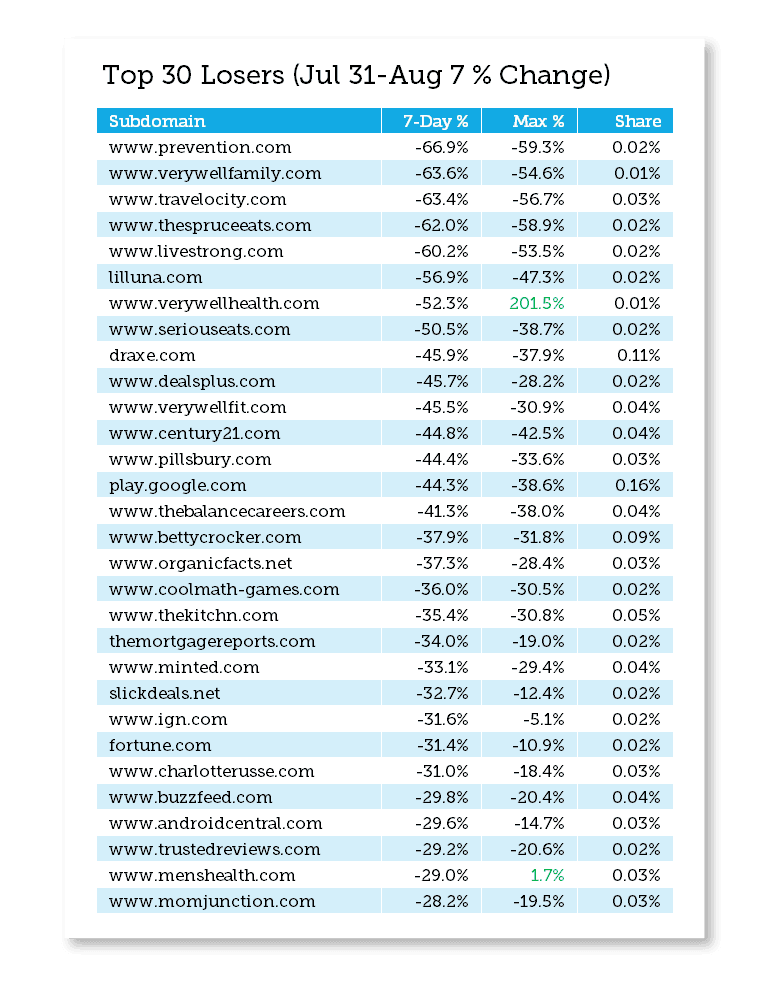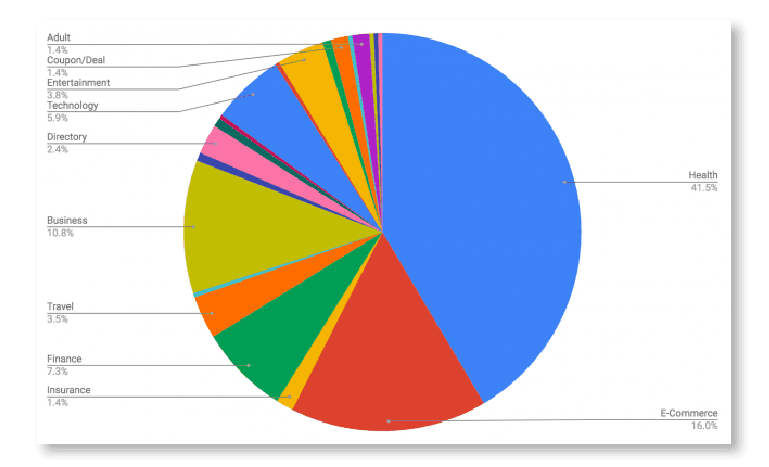Are you ready to take your website to the next level? With Google algorithm updates constantly shaking up the world of SEO, it’s essential to stay up-to-date if you want to succeed.
But with so many changes happening all the time, it can be tough to know where to start. The good news is, there are proven strategies and techniques that can help you stay ahead of the curve and reap the rewards.
Find out how you can leverage these updates to your advantage and give your website the boost it needs to reach new heights.
Google search engine uses an algorithm to determine a site’s ranking on its results page. That means it isn’t just about the number of links pointing to your page, but something much more complicated considering many factors.
In short, Google’s PageRank algorithm weighs the number and quality of backlinks, the length of a website’s domain history, keywords within the site, and how they appear in relation to each other. It also considers the reputation of the website’s owner, and the content’s relevance to a specific query.
The complexity of this algorithm has implications for many bloggers worldwide: anyone serious about finding success with their blog should be committed to understanding how everything works so they can adapt accordingly. But there are some things you can do to counteract these algorithms and keep your blog in good standing with Google search engine results pages.
Here is a list of the major algorithm updates from the past decade that have shaped Google’s algorithm:
Panda Update
Jennifer Slegg, longtime speaker and SEM expert, writes:
“Google Panda is one of Google’s ranking filters that seeks to downrank low-quality pages, which results in sites with higher quality and valuable content rising higher in the search results. But it is easily one of the most misunderstood algos.”
“Here is what we know about Google Panda, as confirmed by Google themselves so that webmasters who feel Panda impacts them can recover without shooting themselves in the foot.”
Penguin Update
“Following on the heels of Panda, the Penguin update was announced by Google as a new effort to reward high-quality websites and diminish the Search Engine Results Page (SERP) presence of websites that engaged in manipulative link schemes and keyword stuffing.”
Hummingbird Update
SEO agency owner and pro blogger, Neil Patel, explains that:
“The Hummingbird update focused on showing results with similar keywords to offer more relevant search results.”
For example, if you search for “small business,” you are directed to websites offering business loans, startup ideas, networking organizations, and other related topics. The results aren’t an exact match for what you searched, but they’re related and assumed to be relevant, so they show up at the top.
This Google algorithm update taught markets to optimize content for the main search term as well as relevant keywords. For example, if you have a burger shop, you should optimize your SEO content for related terms like fast food, snacks, breakfast, etc.
After these major Google algorithm updates, marketers began focusing on creating high-quality content with authoritative links to rank higher. Future algorithm updates also encouraged digital marketers to optimize their mobile viewing websites and improve the overall user experience.”
Pigeon Update
Gordon Donnelly published a post @ Wordstream.com about this:
“In July of 2014, Google released a significant local search algorithm update. The new local algorithm ties deeper into Google’s web search capabilities, including hundreds of core algorithm ranking signals, and features like the Knowledge Graph, spelling correction, synonyms, etc.” Search Engine Land dubs it “Pigeon” because “pigeons tend to fly back home.”
Mobile Update
Not sure how Google’s Mobile-Friendly Algorithm Update Affects Your Website?
Verizon featured a syndicated article from Business 2 Community on the topic:
“Google’s announcement is somewhat unprecedented, providing specific details of the change and an exact roll-out date. “When it comes to search on mobile devices, users should get the most relevant and timely results, no matter if the information lives on mobile-friendly web pages or apps,” the company noted. “As more people use mobile devices to access the Internet, our algorithms must adapt to these usage patterns.”
Medic Update
B2B content marketing expert, Elise Dopson, writes:
“On Aug. 1, 2018,Google rolled out a new core algorithm update. That’s not groundbreaking news; as explained by the internet gods, they release some updates several times a year.
But this one? It was pretty spectacular. And I don’t just mean the sheer size of it; the effects were devastating for some websites.
Huge sites like LiveStrong, The Kitchn, and Men’s Health lost thousands of organic visitors overnight.

Source: Coschedule
“That’s not to say site owners who don’t fall into the healthcare category are safe, though. In fact, eCommerce, business, technology, and finance took a sizeable dent of the disaster share, too.”

Google Mobile-First Indexing update (2018)
Content marketer and strategist Allie Decker, in a Hubspot article, reveals:
“The Mobile-First Indexing Update was another nod from Google to those websites that use a mobile-friendly website.”
Here’s how Google explains:
“[Historically,] our crawling, indexing, and ranking systems have typically used the desktop version of a page’s content, which may cause issues for mobile searchers when that version is vastly different from the mobile version.
Mobile-first indexing means that we’ll use the page’s mobile version for indexing and ranking to better help our primarily mobile users find what they’re looking for.”
“When producing search results, Google will continue to pull from a single data index; this update means they’ll be populating more of this index with mobile versions of website content. Also, this update primarily affected how websites are indexed, not how they are ranked, but that’s not to say it’ll affect rankings down the line.
Bert Update (2019)
According to SEJ, when Google announced the BERT Update, it was calling it the biggest change to Google search in the past five years.
“Google uses BERT models to better understand search queries. Google said this change impacted both search rankings and featured snippets, and BERT ( Bidirectional Encoder Representations from Transformers) will be used on ten percent of U.S. English searches.”
Product Reviews Update (2021)
SEJ also gives insights about this algorithm update:
“This new search ranking algorithm update was designed to reward “product reviews that share in-depth research, rather than thin content that simply summarizes a bunch of products.” In their announcement, Google also shared nine useful questions to consider when creating and publishing product reviews.”
MUM Update (2021)
Kate Coleman, Content Strategy Manager at Status Labs, affirms:
“Google announced MUM in May 2021, and though it has moved to replace BERT, the goals are similar: to correctly interpret user search queries to fulfill their request as efficiently as possible.
What is MUM?
Put simply, MUM is a new algorithm that uses AI to help users find content relevant to their search intent across different languages and kinds of media. The ultimate goal of the update is to provide users with a more comprehensive and nuanced response to searches. MUM eliminates the need for multiple searches or refining your search while giving you all the information you need in the context that you need it for whatever you may look up online, almost mimicking how a person interprets a particular question.”
Closing Thoughts
Staying on top of Google algorithm updates is crucial for any blogger or website owner serious about improving their search engine rankings. Google’s complex algorithms consider many factors, including backlinks, domain history, keywords, and relevance to specific queries.
By adapting to these updates and implementing effective strategies, you can keep your website in good standing with Google search engine results pages.
Remember that understanding the critical factors that affect search engine rankings and staying up-to-date with the latest algorithm updates is essential to achieving your goals.
At Flying V Group, we understand the importance of staying on top of Google algorithm updates. Our team of experts stays up-to-date on the latest changes and can help your business thrive in search engine results pages. Contact us today to learn more about our services and how we can help your business succeed online.






0 Comments